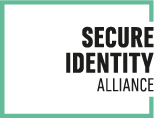How eID is helping secure social protection and unlocking a sustainable, empowered future for communities around the globe
This quarter, Jacques Van Zijp, Board Member of the Secure Identity Alliance looks at how eID is helping secure social protection and unlocking a sustainable, empowered future for communities around the globe.
May 2014: Social security infrastructures offer much needed safety nets for citizens across the developed world.
The benefits are many: addressing poverty, protecting vulnerable groups, delivering empowerment programs and the effective provision of health and social care services.
At the most fundamental level, the planning and delivery of social support programs is predicated on the government’s knowledge of its citizens: who they are, where they live, their social and economic circumstances and so on. In other words; their identity.
That knowledge begins at birth, with registration. The mechanism of the state then takes over and follows citizens throughout their lives.
In the developing world things are less straightforward. For millions of people around the world the apparently simple task of providing documentation that proves who they are is a major challenge.
Migrant populations, the illiterate or those who living in remote rural locations struggle to accurately register a child’s birth – and as a result are excluded from taking advantage of basic services that provide a vital ‘foundation for support’. What’s more, without verifiable ID, governments are unable to track if the benefits of their poverty reduction schemes are actually being paid to the intended beneficiaries. Similarly, demonstrating accountability and transparency in the allocation of public resources in a near impossible task.
Of course, technology is helping to change all that. By utilizing a unique electronic identity (eID) that can be verified – for example, through the use of the mobile phone – the excluded at last have a means of proving who they are. Births can be registered, and a root identity created. Citizens are then ‘in the system’, able to access and fully benefit from social protection schemes. It’s not just the state of course. The eID enables engagement with banking institutions and more. We’re seeing countries around the world employing digital ID to tackle a wide range of challenges.
In Burkina Faso, for example, the government is utilizing secure ID to restore credibility to the electoral process by issuing biometric voter cards that have eradicated fraud at the polling station.
In Gabon, a new eHealthCare scheme targeting the farming community, the unemployed and the self-employed is enabling the cost-effective and auditable delivery of medical services to those in need.
In India, a major Unique ID (UID) project has proved highly transformative, delivering a range of political and economic rights to the wider population. Over 620 million residents have been registered via a multi-biometric enrolment process, and all 100% of these have opened a bank account to receive their benefits.
Thanks to the central, single registry, the Indian government is now able to identify and track who has access to what public services, spot where additional program capacity is needed and can target their health and inclusion programs with much greater accuracy.
Today’s social protection programs protect the vulnerable and institutionalize citizens’ rights – enabling governments to address exclusion issues and target the delivery of short-term discretionary safety nets to those most in need. But they’re also proving to be growth enhancing - increasing citizen’s access to assets, education and health.
It's projects like these that the Secure Identity Alliance, together with governments from around the world, is working hard to support. And as the SIA moves into its second year of operation, it will continue to expand its global best practice initiatives to further accelerate worldwide sustainable economic growth through the provision of trusted digital identities.
Attend the SIA’s presentation on Tuesday 17th June 2014 at 11:10 in the Churchill Auditorium : How eID is helping secure social protection and unlocking a sustainable, empowered future for communities around the globe (11:05: Biometrics 20/20 - Overcoming hurdles, creating opportunities Track) The presentation and a report will be made available that day.

